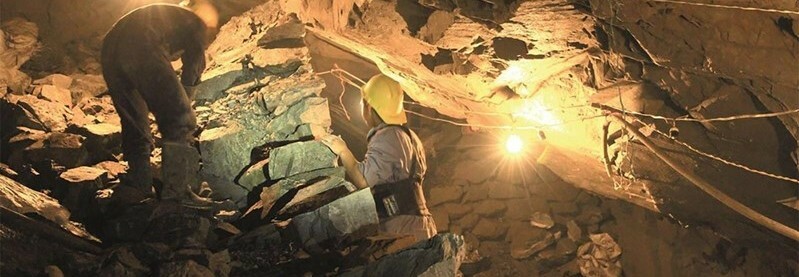Seven artisanal and small-scale gold miners have tragically lost their lives when the walls of a mine they were digging collapsed in Naknak, Kapoeta South County, located in South Sudan’s Eastern Equatoria State. The incident occurred on Monday amidst heavy rainfall, trapping miners in the Naknak River.
Local authorities report that six miners were killed instantly when the mine collapsed, with another fatality occurring during attempted rescue efforts. One fortunate individual managed to survive the ordeal.
Rescue operations have been hindered by the challenging conditions, with some bodies still trapped inside the mining hole, which measures 8 to 9 meters in depth.
This is not the first incident of its kind in the region. Late last year, two individuals lost their lives in a similar gold mine collapse in Kapoeta South County. Many residents, including young men, women, and children, engage in small-scale gold mining for sustenance.
While the Eastern Equatoria State Government previously stated that there were no large-scale gold mining activities in the area, it acknowledged the presence of small-scale mining operations, often conducted by locals who may not dig deeper than 10 meters.
Speaking to Radio Tamazuj on Wednesday, Albino Lopeta, the Chief of Naknak, addressed the incident, stating that it occurred on Monday around 10:00 AM local time. According to him, some of the deceased individuals have yet to be identified by locals and are believed to have travelled from Kapoeta East Narus to engage in gold mining.
Lopeta described the sequence of events, stating, “What happened here in Naknak is attributed to the river, which originates in Kangutuny. Yesterday, around 10:00 in the morning, the river surged and filled the mining hole while people were inside, resulting in casualties. Three individuals were found deceased, while four remain trapped inside, bringing the total fatalities to seven. The origins of these four individuals are unknown to us, as they arrived in Naknak seeking opportunities in gold mining. Since their arrival, they have remained unfamiliar with the area, sleeping near the gold mines. We are now seeking information from anyone who may recognize them.”
Juma Justine, the Executive Director of Kapoeta South County, confirmed the incident, attributing it to heavy rainfall in the area. He reported that one person was rescued and survived the collapse, emphasizing that the local population relies on mining to sustain their families.
“The incident occurred yesterday around 10:00 in the morning. As you know, the people of Naknak depend on gold mining for their livelihoods. Due to the rainfall in Kapoeta, there was a sudden influx of water that engulfed the miners in the river, filling the mining holes where they were working. This resulted in casualties, with two individuals found dead after the collapse. However, one person was fortunate enough to survive. The collapsed area consisted of two connected holes, with four individuals trapped in one of them. Unfortunately, all four individuals in that hole perished. The depth of these holes is approximately 8 to 9 meters. In total, seven individuals lost their lives in the Naknak gold mining incident yesterday,” he explained.
Joseph Lopeyok, aged 25, who survived the incident, recounted the harrowing experience in Toposa. He explained that they were taken by surprise by a sudden rush of water, and although three of them managed to escape, they tragically died shortly after being submerged.
“We were caught off guard by the sudden rush of water while digging our hole. There were many of us, and we never anticipated the rain. When we heard the sound of water, it began to chase the younger children, who were about ten years old and above. I was with one of the deceased in the hole when the water reached us. Despite our efforts to escape, the force of the water overwhelmed us. I tried to grab hold of my companion’s hand, but we were unable to escape. The strong current also pulled me back towards the hole, making it impossible for us to reunite with the others for help,” he lamented.
Artisanal and Small-scale mining refers to informal mining activities carried out using low technology or with minimal machinery. It is estimated that more than 100 million people rely on this sector for income, mainly in developing nations.




